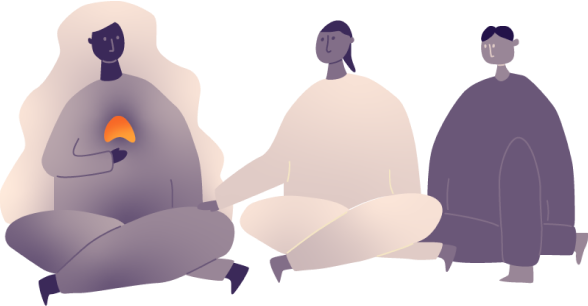Awhi is still in development, we'd love your feedback and suggestions. Let us know.
Pathological Demand Avoidance syndrome (PDA) and toileting
According to Autism UK, Pathological Demand Avoidance syndrome (PDA) is a profile that describes children and adults whose main characteristic is to avoid everyday demands and expectations to an extreme extent
Many parents and teachers find that some of the recommended strategies used with autistic children are not effective for a child with a PDA profile. So here are some tips specifically for children with PDA to help with toileting.
Children with PDA find certain situations, such as toileting, extremely stressful and will often do whatever they can to avoid them. Behaviours may include hiding under tables or in cupboards, going limp, crying, verbal withdrawal, and hitting, kicking and screaming.
Compliance difficulties may arise because your child simply doesn’t understand what to do, or the task is too complicated. Or perhaps in a world where adults control everything like how and when to pee is something a child can control.
To avoid your toilet becoming a battleground:
- Try to ignore negative behaviours and see them as signs of distress. Respond calmly and matter-of-factly. Even better, with humour!
- Break the toileting process into more manageable steps your child.
- Choose your battles – don’t sweat the small stuff.
- Don’t demand compliance – be prepared to negotiate.
- Provide options – being able to choose between one activity or item empowers children and reduces their anxiety.
- Be creative, and flexible in your approach – use role play and bring your child’s favourite toys into the mix. Keep it fun.
- If your child is very anxious, let them withdraw to a safe place until they’re calmer.
Often children with PDA learn to be more compliant at school – don’t take it personally, this more likely indicates they can express their anxiety where they feel safe and secure - at home.
Top tips to remember:
- Your child may take longer to master the toileting process – so be patient and positive and don’t try to rush it.
- Never force your child to go to the toilet – physically or verbally.
- Even if you are feeling frustrated, don’t let your child know. Remember, they are doing their best.
- Focus on one stage at a time and be enthusiastic about the process - celebrate flushing a poo down the toilet, for example.
- Make sure your child has everything they need to feel comfortable and happy sitting on the toilet.
For more books on getting your child toilet-trained, contact the IHC Library** on 0800 442 442, or email: librarian@ihc.org.nz**.
Resources
Female Social Story Books from Me Now
Female Social Story Books from Me Now
1. Booklet: Having a shower 2. Booklet: I touch myself 3....
1. Booklet: Having a shower...
Potty time for kids with Down syndrome :
Potty time for kids with Down syndrome :
"The guide discusses physical, medical, and behavioral issues that...
"The guide discusses...
The parent's guide to occupational therapy for autism and other special needs :
The parent's guide to occupational therapy...
"Expanding upon the award winning first edition, this essential...
"Expanding upon the award...
The parent's guide to occupational therapy for autism and other special needs :
The parent's guide to occupational therapy...
"Expanding upon the award winning first edition, this essential...
"Expanding upon the award...
The potty journey :
The potty journey :
"Systematic, comprehensive and proven way to toilet train children...
"Systematic, comprehensive...
Ready, set, potty!
Ready, set, potty!
"Bursting with ideas on how to see past conventional strategies and...
"Bursting with ideas on how...
Ready, set, potty! Toilet training for children with autism and other developmental disorders
Ready, set, potty! Toilet training for...
"Bursting with ideas on how to see past conventional strategies and...
"Bursting with ideas on how...
Toilet training success :
Toilet training success :
"From sitting on a toilet to independent use of a public restroom,...
"From sitting on a toilet...
Steps to independence: teaching everyday skills to children with special needs
Steps to independence: teaching everyday...
Gives proven strategies for teaching the life skills children from...
Gives proven strategies for...
Safety and Consent for Kids and Teens with Autism or Special Needs :
Safety and Consent for Kids and Teens with...
"The developmental challenges of children with special needs means...
"The developmental...
Safety and consent for kids and teens with autism or special needs :
Safety and consent for kids and teens with...
"The developmental challenges of children with special needs means...
"The developmental...
Autistic logistics :
Autistic logistics :
"This updated edition is based on Kate Wilde's decades of...
"This updated edition is...
Autistic logistics :
Autistic logistics :
"This updated edition is based on Kate Wilde's decades of...
"This updated edition is...
Toilet training and the autism spectrum (ASD) :
Toilet training and the autism spectrum...
"This book looks at toilet training difficulties for children with...
"This book looks at toilet...
Toilet training and the autism spectrum (ASD) :
Toilet training and the autism spectrum...
"This book looks at toilet training difficulties for children with...
"This book looks at toilet...
Autism :
Autism :
"This book will show you the most common hygiene problems that...
"This book will show you...
Toilet training for individuals with autism or other developmental issues :
Toilet training for individuals with...
"Toilet training can become a battleground for caregivers and...
"Toilet training can become...
What to do about smearing :
What to do about smearing :
With down to earth advice and tried and tested strategies, this...
With down to earth advice...
What to do about smearing :
What to do about smearing :
With down to earth advice and tried and tested strategies, this...
With down to earth advice...
Are you ready? a toilet training package.
Are you ready? a toilet training package.
Gives a step by step guide through the toilet training programme....
Gives a step by step guide...
Bowel and bladder assessment pack :
Bowel and bladder assessment pack :
"Some children and teenagers with a learning disability, physical...
"Some children and...

Resources for kids
Bobby can use the toilet /
Bobby can use the toilet /
"This is a social story to help children learn to use the toilet....
"This is a social story to...
Liam goes poo in the toilet :
Liam goes poo in the toilet :
Liam learns to poop in the toilet after a little difficulty.
Liam learns to poop in the...
A wee secret
A wee secret
Jet Johnson has a secret ... find out how he bravely gets the help...
Jet Johnson has a secret...
A wee secret
A wee secret
Uses a story format to address the problem of bedwetting in...
Uses a story format to...
Poo Hoo
Poo Hoo
The story of Tim Thompson who is having problems with sore tummies...
The story of Tim Thompson...
Poo hoo /
Poo hoo /
Uses a story format to address the medical problem of fecal...
Uses a story format to...
How to poop everyday /
How to poop everyday /
A boy is encouraged to develop healthy habits by using the potty...
A boy is encouraged to...
Willie wants to wee-wee!
Willie wants to wee-wee!
When Willie woke up he knew what he wanted to do, and it was...
When Willie woke up he knew...
.jpg&w=128&q=75)
Meryl Richards
I’m Meryl Richards. What a pleasure it’s been to join the Awhi team. I get to spend my days researching information that supports me as a parent, and sometimes challenges me to rethink what I thought I knew. My hope is that it will be useful to you too. I live in Kapiti with my partner and two teenage boys, and spend as much time as possible in the surrounding bush and at the beach.
Was this resource helpful to you?


The Awhi Ngā Mātua team would like to thank Takai, the IHC Foundation and the Dines Family Charitable Trust for their generous contributions to our work. A huge thank you also to the IHC Programmes team, in particular the IHC Library which has worked so hard to make their remarkable collection available to us.




.jpg&w=3840&q=75)




